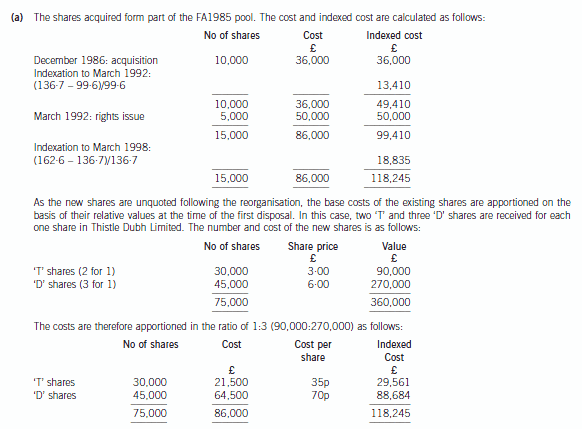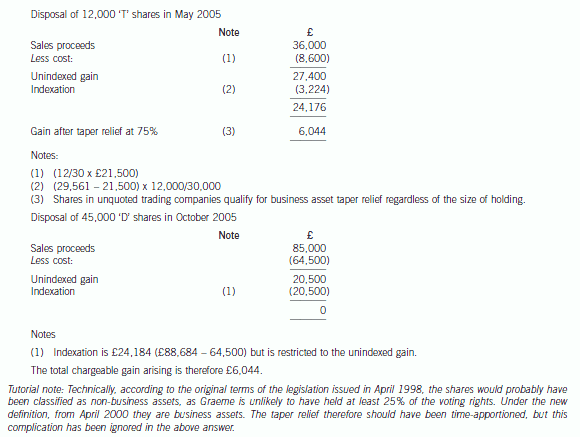重磅消息:听说安徽省ACCA考试有免考?你得有这些条件哦
发布时间:2020-01-09
众所周知,ACCA国际会计注册师考试科目多达15个科目,备考和复习起来的难度也毋容置疑是十分巨大的,而目前ACCA官方出台了相关的考试规则和免考政策,免考的科目一个人可以多达9科,具体免考的条件是什么呢?且随51题库考试学习网一起去了解一下,看看你能免考几科呢?
首先,在讲述免试政策之前,你得符合ACCA考试规则才可以参与考试,具体的规则如下:
1、申请参加ACCA考试者,必须首先注册成为ACCA学员。(需要到官网上申请注册)
2、学员必须按考试大纲设置的先后次序报考,即知识课程,技术课程,核心课程和选修课程。在一个课程中可以选择任意顺序报考。51题库考试学习网建议在一个课程中可以通过自身能力来考虑报名顺序,并不一定非要按照官方给出的顺序报名。
3、基础阶段的知识课程考试时间为两小时,基础阶段的技能课程和专业阶段所有课程考试时间为三小时,及格成绩为50分(百分制)。从2016年起,ACCA实行4个考季,即学员可选择在3、6、9、12月考季在当地笔试考点进行考试。学员每年最多报考8门。
4、基础阶段9门考试不设时限;专业阶段考试年限为7年,从通过第一门专业阶段考试之日算起。只要在7年内通过全部考试科目都算考核通过,下一步即可申请证书。
5、考试的报名时间不同,考试资费标准就不同(该优惠政策仅限网上报名)。简单点来说就是较早报名考试,费用会相对较少。报考时间分为提前报名时段,常规报名时段和后期报名时段。
接下来,就是万众瞩目的ACCA专业资格考试免试政策,建议ACCAer们收藏分享哟~




以上专业所对应的免试门数仅供参考,最终免试结果由ACCA英国总部审核确认。如有和ACCA英国总部所发布的免试政策有差异,一切以ACCA英国总部发布的文献为主~
如持有国外学历,或需要了解更详细免试情况,请查询官网或联系上财培训。
注意
1、在校生只有顺利通过整学年的课程才能够申请免试。(即未拿到学位证和学历证之前不能申请免试)
2、针对在校生的部分课程免试政策只适用于会计学专业全日制大学本科的在读学生,而不适用于硕士学位或大专学历的在读学生。
3、已完成MPAcc学位大纲规定课程,还需完成论文的学员也可注册并申请免试。但须提交由学校出具的通过所有MPAcc学位大纲规定课程的成绩单,并附注“该学员已通过所有MPAcc学位大纲规定课程,论文待完成”的说明。
4、特许学位(即海外大学与中国本地大学合作而授予海外大学学位的项目)部分完成时不能申请免试。
5、政策适用于在中国教育部认可的高等院校全部完成或部分完成本科课程的学生,而不考虑目前居住地点
大家是否已经了解到了自己能免试几科呢?51题库考试学习网提醒一下大家哦,免试虽然不用考试,但考试科目的报名费用还是得缴的哟~大家还是得及时缴费,以防出现不必要的麻烦~
下面小编为大家准备了 ACCA考试 的相关考题,供大家学习参考。
(c) Temporary staff assignments. (6 marks)
(c) Temporary staff assignments
Lending staff on a temporary basis to an audit client will create the following ethical threats:
Management involvement – Assuming that the manager or senior is seconded to the finance function of the audit client, it
is likely that the individual would be in some way involved in decision making in relation to the accounting systems,
management accounts or financial statements.
Self-review – On returning to the audit firm, a seconded individual could be a member of the audit team for the client to
which they seconded. This would create a self- review threat whereby they would be unlikely to be critical of their own work
performed or decisions made. Even if the individual were not assigned to the client where they performed a temporary
assignment, the audit team assigned may tend to over rely on areas worked on by a colleague during the period of their
temporary assignment.
Familiarity – if the individual is working at the client at any time during the audit, there will be a familiarity threat, whereby
audit team members will be unlikely to sufficiently challenge, and therefore not exercise enough professional scepticism when
dealing with work performed by the seconded individual.
In addition, due to the over-staffing problem of Becker & Co, the seconded individuals may feel that if they were not on the
secondment, they could be made redundant. This may cause them to act in such as way as not to jeopardise the secondment,
even if the action were not in the best interests of the firm.
The threats discussed above are increased where a senior person likely to make significant decisions is involved with the
temporary assignment, as in this case where audit managers or seniors will be the subjects of the proposed secondment.
In practice, assistance can be provided to clients, especially in emergency situations, but only on the understanding that the
firm’s personnel will not be involved with:
– Making management decisions,
– Approving or signing agreements or similar documents, and
– Having the authority to enter into commitments on behalf of the company.
In addition, the individual seconded to a client should not then be involved in any way with the audit of that client when they
return to the audit firm. This may be a difficult area, as presumably the client would prefer to have an individual seconded
to them who has knowledge and experience of their business, i.e. a member of the audit team, and most likely in this scenario
to be the audit manager. If this were the case the manager would then have to be reassigned to a different client, causing
internal problems for the audit firm. This problem is likely to outweigh any benefits, financial or otherwise, to Becker & Co.
If the temporary staff assignment were to a non-finance department of the client then the threats would be reduced.
If Becker & Co decides to go ahead with the secondment programme, the firm must ensure that the staff are suitably
experienced and qualified to carry out the work given to them by the client. There could be a risk to the reputation of Becker
& Co if the seconded staff are not competent or do not perform. as well as expected by the client.
One advantage of a secondment is that the individual concerned can benefit from exposure to a different type of work and
work environment. This will provide some valuable insights into accounting within a business and the individual may bring
some new skills and ideas back into the audit firm.
However, the staff seconded could be offered a permanent position at the client. This would lead to the loss of key members
of staff, and be detrimental for Becker & Co in the long run.
The other benefit for the audit firm is that a programme of secondments will ease the problem of an over-staffed audit
department, and should have cash flow benefits.
Tutorial note: In answering this question it is relevant to briefly mention corporate governance implications i.e. the client may
not be able to accept the services offered by their auditor for ethical, particularly objectivity, reasons.
In 2014 Mr Yuan inherited an estate of RMB2 million from his uncle who had died two months earlier.
What is the correct treatment of the estate income for individual income tax purposes?
A.The estate income is not taxable
B.The estate income will be taxed as occasional (ad hoc) income
C.The estate income will be taxed as other income
D.The estate income will be taxed as service income
18 How should interest charged on partners’ drawings appear in partnership financial statements?
A As income in the income statement
B Added to net profit and charged to partners in the division of profit
C Deducted from net profit and charged to partners in the division of profit
D Deducted from net profit in the division of profit and credited to partners
2 Graeme, aged 57, is married to Catherine, aged 58. They work as medical consultants, and both are higher rate
taxpayers. Barry, their son, is aged 32. Graeme, Catherine and Barry are all UK resident, ordinarily resident and
domiciled. Graeme has come to you for some tax advice.
Graeme has invested in shares for some time, in particular shares in Thistle Dubh Limited. He informs you of the
following transactions in Thistle Dubh Limited shares:
(i) In December 1986, on the death of his grandmother, he inherited 10,000 £1 ordinary shares in Thistle Dubh
Limited, an unquoted UK trading company providing food supplies for sporting events. The probate value of the
shares was 360p per share.
(ii) In March 1992, he took up a rights issue, buying one share for every two held. The price paid for the rights
shares was £10 per share.
(iii) In October 1999, the company underwent a reorganisation, and the ordinary shares were split into two new
classes of ordinary share – ‘T’ shares and ‘D’ shares, each with differing rights. Graeme received two ‘T’ and three
‘D’ shares for each original Thistle Dubh Limited share held. The market values for the ‘T’ shares and the ‘D’
shares on the date of reorganisation were 135p and 405p per share respectively.
(iv) On 1 May 2005, Graeme sold 12,000 ‘T’ shares. The market values for the ‘T’ shares and the ‘D’ shares on that
day were 300p and 600p per share respectively.
(v) In October 2005, Graeme sold all of his ‘D’ shares for £85,000.
(vi) The current market value of ‘T’ shares is 384p per share. The shares remain unquoted.
Graeme and Catherine have owned a holiday cottage in a remote part of the UK for many years. In recent years, they
have used the property infrequently, as they have taken their holidays abroad and the cottage has been let out as
furnished holiday accommodation.
Graeme and Catherine are now considering selling the UK country cottage and purchasing a holiday villa abroad.
Initially they plan to let this villa out on a furnished basis, but following their anticipated retirement, would expect to
occupy the property for a significant part of the year themselves, possibly moving to live in the villa permanently.
Required:
(a) Calculate the total chargeable gains arising on Graeme’s disposals of ‘T’ and ‘D’ ordinary shares in May and
October 2005 respectively. (7 marks)


声明:本文内容由互联网用户自发贡献自行上传,本网站不拥有所有权,未作人工编辑处理,也不承担相关法律责任。如果您发现有涉嫌版权的内容,欢迎发送邮件至:contact@51tk.com 进行举报,并提供相关证据,工作人员会在5个工作日内联系你,一经查实,本站将立刻删除涉嫌侵权内容。
- 2020-05-17
- 2020-05-09
- 2020-01-09
- 2020-01-09
- 2020-05-17
- 2020-01-09
- 2020-05-04
- 2020-01-15
- 2020-01-09
- 2020-04-30
- 2020-05-15
- 2020-03-11
- 2020-03-07
- 2020-04-22
- 2020-02-26
- 2019-07-19
- 2020-05-03
- 2020-05-09
- 2020-01-09
- 2020-05-10
- 2020-01-29
- 2020-05-20
- 2020-01-09
- 2020-05-07
- 2020-05-14
- 2020-03-21
- 2020-01-09
- 2020-01-09
- 2020-04-29
- 2020-05-17